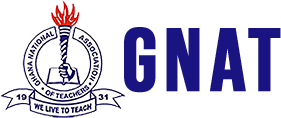The National Council of the Ghana National Association of Teachers, GNAT, having convened at the GNAT Village, Abankro near Ejisu, Ashanti Region, between 6th and 14th November, 2021, and having deliberated on all the issues tabled before it exhaustively, hereby issues this Communique:
Insurance has been made easy, thanks to the introduction of ‘Asantewaa’ by Unique Insurance Company Limited.
With the mantra ‘Brakes May Fail, Our Insurance Doesn’t’, Unique Insurance Company Limited set up the chatbox to go the extra mile to prioritise
the welfare of existing policyholders and potential ones. With Asantewaa, one can sign up, pay for a policy, as well as make enquiries without any
fuss.
Managing Director of Unique Insurance, Victor Obeng-Adiyiah, said the company seeks to provide quality insurance solutions for several of its
clients and to be two steps ahead of any unexpected event such as COVID-19.
“It’s more about reliability. We want to compare our insurance with the brakes. When the brake fails, the driver is not able to apply the brakes and
that is when Unique Insurance comes in. We are more reliable than brakes. Unique Insurance is always there.”
He added, “A lot of companies are now coming up technologically because of COVID. I must say Unique Insurance saw it coming. So we were
already digitized. We have a few people in our offices but as soon as you hit our sweetheart, Asantewaa you are good to go. Asantewaa is now the
main contact person for Unique Insurance. Anywhere you are, through email, any social media platform, you make a phone call, Asantewaa will be
there to provide any help you need.”
Head of Marketing at Unique Insurance, Gifty Owusuwaa Darko, however, noted that although the company is keen on digitization, it is well
equipped with well-trained staff who are reliable and render top-notch services.
“We have also digitized our operations. We have people who are well trained. We have trained them such that, their response rate to your queries are
top-notch… When it comes to Unique Insurance, we are not going to delay you, we are not going to stretch you. We make sure you are paid on
time.”Touching on the types of insurance policies, Unique provides; Motor Insurance which covers third-party, third-party fire and theft insurance,
comprehensive insurance; Marine Insurance Policy, Fire Insurance and other policies.
Despite some assertions that insurance companies delay in payment of claims, one of the qualities Unique Insurance can boast of is the prompt
payment of claims. This includes Minor Motor Comprehensive claims which are paid within two hours.
“The founding fathers of this company set it up to make sure that when it comes to claim payment they were going to be unique. People can attest to
the fact that whenever it comes to payment of claims, we mean genuine claim, we pay them promptly. We are in competition, but our service makes
us different. All minor claims are paid within 2 hours,” the Managing Director noted.
Unique Insurance Company Limited has been in existence for the past 20 years and has its founding members from the Teachers Fund of GNAT,
some affiliate Unions of the Trade Union and some high net worth individuals.
For more information please visit: http://uicghana.org/Products
Ghanaian teachers have been commended for putting their lives on the line in the wake of the COVID-19 pandemic to ensure that our future leaders are not denied quality education.
“Although the pandemic is causing a lot of discomfort, yet the teacher adopt a holistic approach characterized by respect for individual students and their unique experiences in order to achieve the much - needed human-centered recovery we are all craving for”.
The National President of the Ghana National Association of Teachers (GNAT) Ms. Philippe Larsen who delivered a message on behalf of Unions in the Pre-Tertiary Education sector, said this at the commemoration of 2021 Ghana Teacher Prize held at the Eusbeth International Conference Centre, in Sunyani, the Bono Regional capital.
She noted that the COVID-19 pandemic had become a major global challenge with unprecedented effects which led to enormous pressure on teachers, yet teachers adopted innovative ways of plying their trade to ensure that their clients stayed on course.
Turning to the theme of this year’s Ghana Teacher Prize, “Teachers wanted: Reclaiming Teaching and Learning for human - centered recovery”, she wondered what happened to teaching and learning that had warranted its recovery, putting the cause at the doorstep of the onslaught of the COVID-19 pandemic.
Ms. Philippe Larsen, however, commended Government for the bold and pragmatic measures it put in place to contain the spread of the virus with the aim of overcoming it to allow the citizenry to move on with their normal lives.
On the concerns of the Unions in the Pre-Tertiary Education sector, she referred the large gathering at the center to the Union’s press statement issued on August 10 which catalogued their various pressing issues and called on the Ghana Education Service (G.E.S) to co-operate with them to ensure the speedy resolution of the issues to avert any industrial action .
Mr. Ebenezer Kojo Otto, of the Winneba Senior High School in the Central Region was adjudged Ghana’s most outstanding teacher and had for his prize, a three - bedroom house and assorted items. The first runner -up was Rev. Sr. Jusinta Kwakyewaa of the St. Francis Senior High Technical School in the Eastern Region, while the second runner - up position went to Mr. Nelson Saviour Kwashie of the Awutu Swindon Senior High School in the Central Region. For their prizes, they had a 4x4 pick-up and a saloon car respectively.
The leadership of the Ghana National Association of Teachers, GNAT, on Wednesday, October 13, 2021 paid a courtesy call on the Asantehene, Otumfuo Osei Tutu II at the Manhyia Palace.
The GNAT leadership which was led by the National President, Ms. Philippa Larsen, visited the palace to officially invite the Asantehene as the Guest of Honour to the National Delegates Conference scheduled to take place in January next year at the Kwame Nkrumah University of Science and Technology.
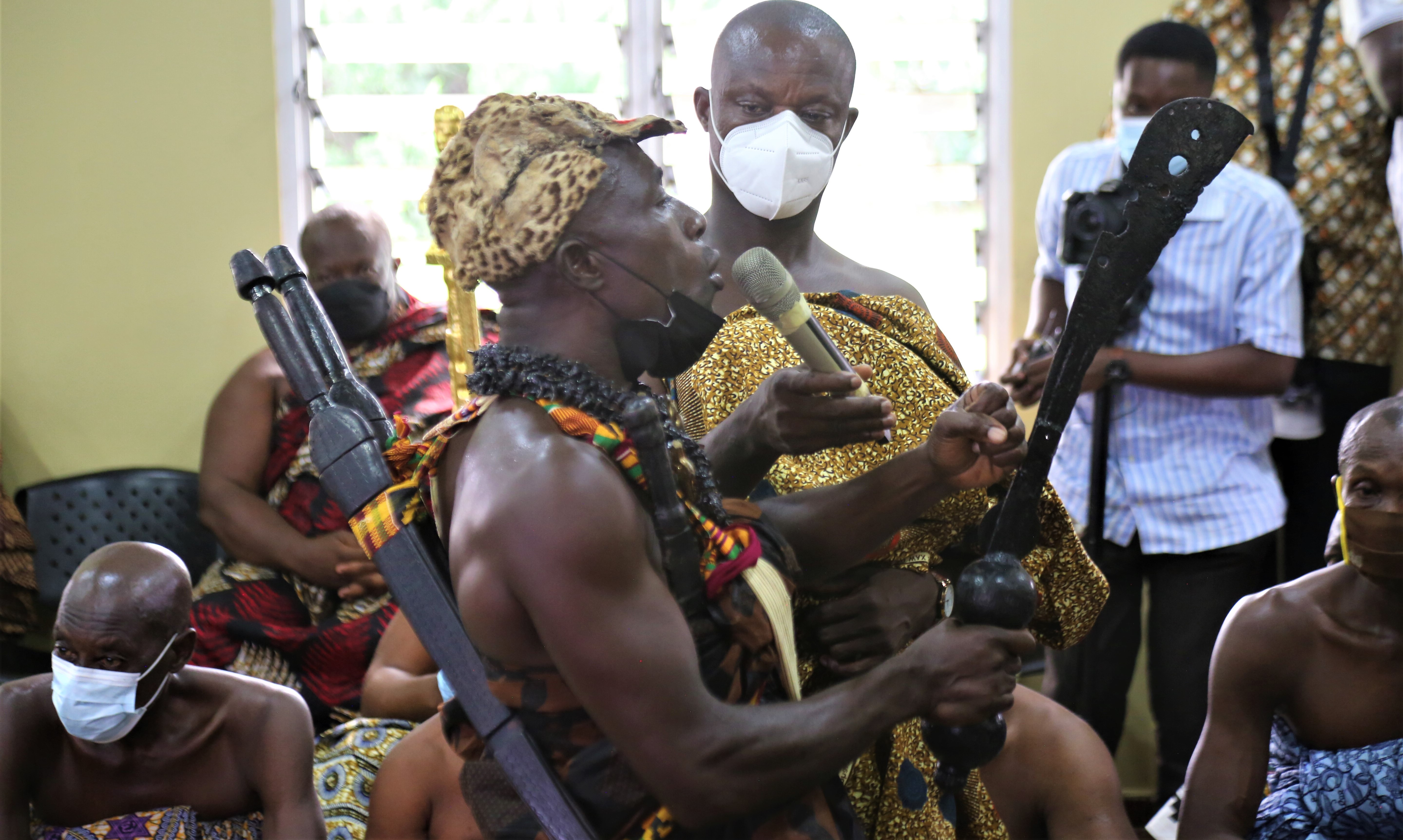
The spokesperson of the delegation, Mr. Prosper Tachie, who is also the Ashanti Regional Chairman of GNAT informed the gathering that the GNAT is ninety (90) years old and the 90th anniversary has coincided with its National Delegates Conference which is organized quadrennially. Mr. Tachie also used the opportunity to thank the Asantehene for renewing the lease of the Ashanti Regional Secretariat land as well as releasing land for the construction of the GNAT Village at Ejisu, Abankro.
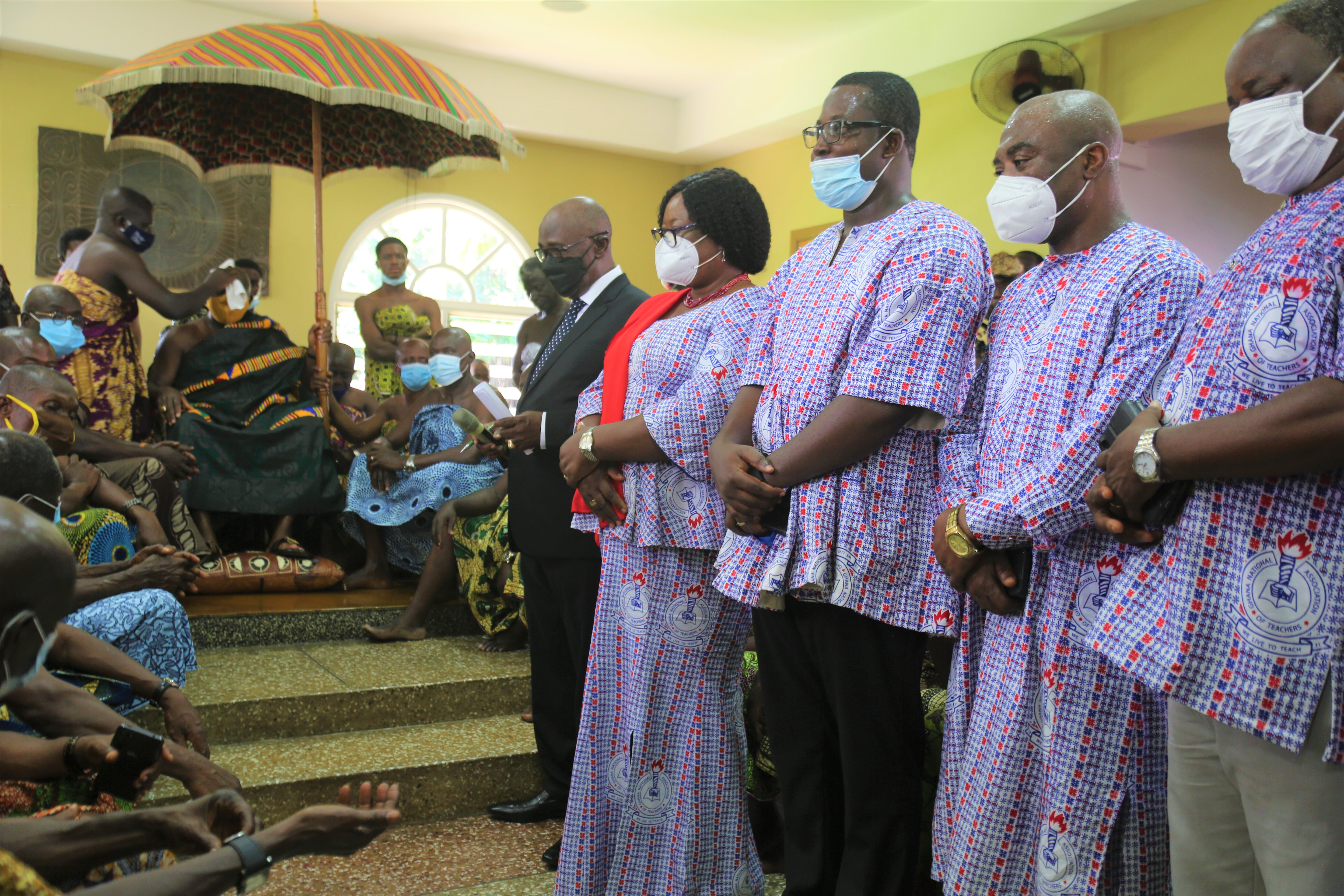
In his remarks, the Asantehene commended the General Secretary and the National President of the GNAT for the good work they have been doing for teachers as he has been reading and following their activities in the media. He was also full of praise for teachers regarding their service to God and country. He further stated that he disagrees with the assertion that the teachers’ reward is in heaven as their role is very important and he can name all the teachers who taught him from kindergarten to the highest level in recognition of the roles they have played in his life.
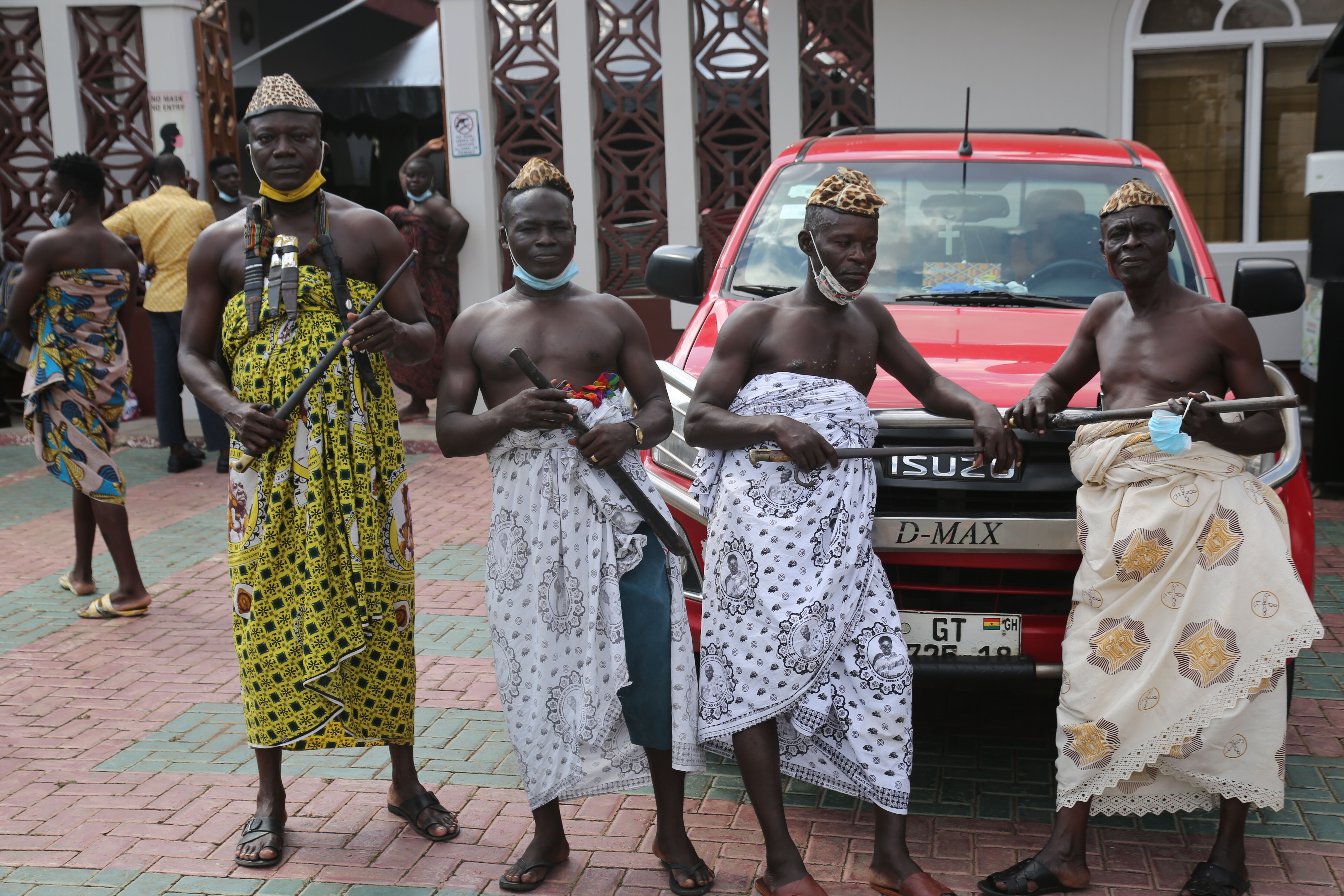
Concluding his remarks, the Asantehene said “I want to congratulate your General Secretary and the National President for their service to teachers. I have been following their exploits in the media. Indeed, I always read the articles published by the General Secretary in the dailies and I must commend them. I will always attend any program organized by teachers when I am invited”.
The delegation commended the hospitality extended to them upon the visit and in turn presented assorted drinks as a sign of their gratitude to the King and the people of the Ashanti Kingdom.
The Controller and Accountant General’s Department (CAGD) has backtracked on its decision to withhold salaries of public sector workers who do not possess the Ghana Card.
Per the initial directive, workers on government payroll would have been denied their salaries by December 1 this year.
According to the Department, this move forms part of ongoing measures to harmonise its systems and synchronize its financial remuneration process through the card.
This policy was expected to ensure a speedy administration of the payroll.
It comes on the back of a meeting on Tuesday, October 19, between the Employment Ministry, Finance Ministry, Controller and Accountant General’s Department andorganised labour after fierce resistance from some some Public Sector unions.
In its latest measure, the Controller and Accountant General’s Department (CAGD) said it will rather transfer the names of public sector workers in their existing database onto the National Identification Authority (NIA) database. In this process, the platform will identify all unregistered members of staff who are available to be factored into the new identification framework.
Find below the communique:
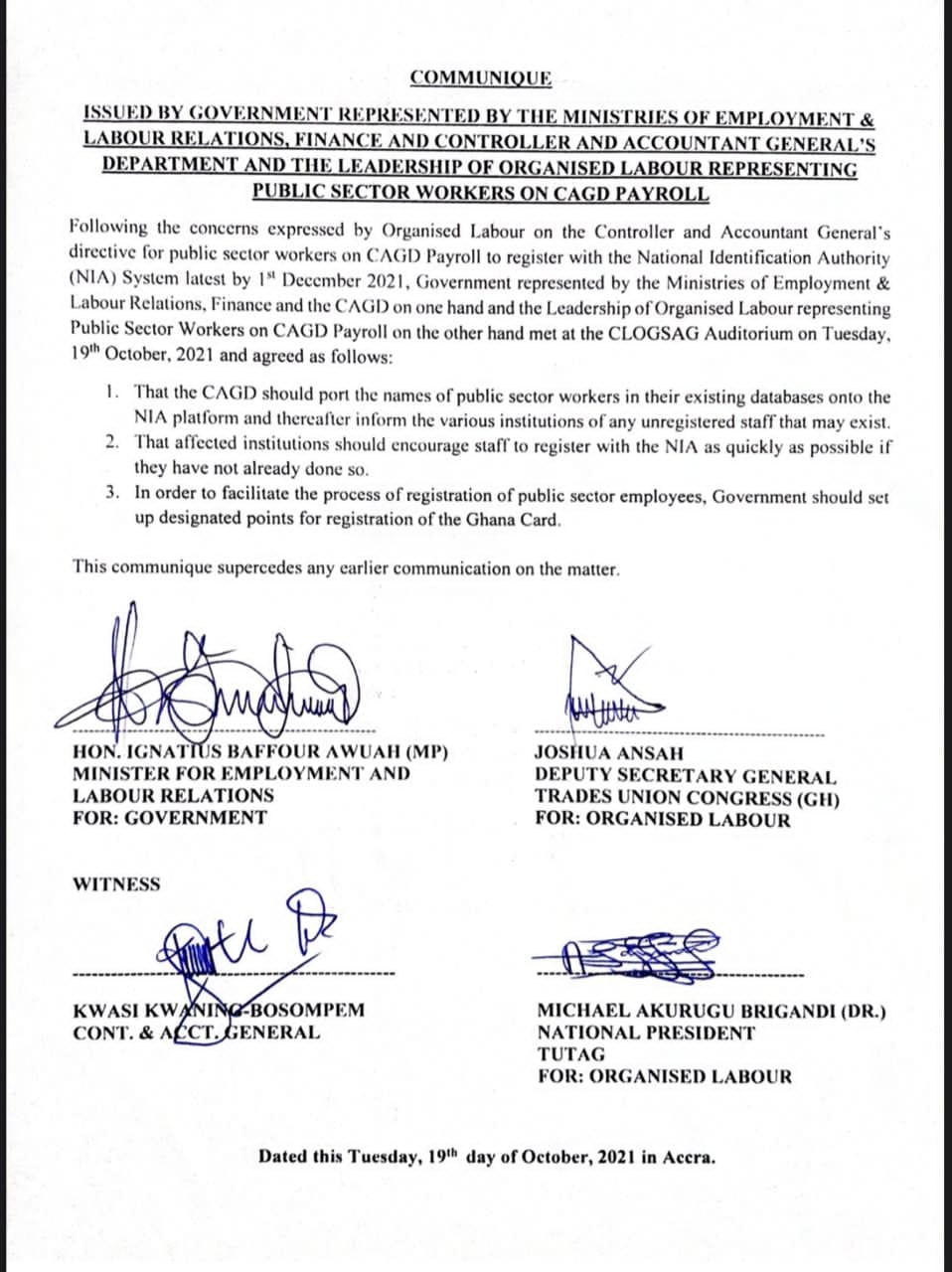
A few days ago, the Ghana National Association of Teachers, GNAT, launched the GNAT Week at Sunyani, to herald the actual celebration of the World Teachers Day at the same venue, come October 5. This year’s celebration is on the theme “Teachers Wanted: Reclaiming Teaching and Learning for Human-centred Recovery”.
The World Teachers Day, also known as the International Teachers Day, owes its origin to the Recommendation Concerning the Status of Teachers, adopted by the United Nations Educational, Scientific and Cultural Organization, UNESCO, and the International Labour Organization, ILO, on 5th October, 1966. The Recommendation was premised on applying a set of common standards and measures to teachers wherever they are, and ensure they make use of all the talent and intelligence available as an essential contribution to continued moral and cultural progress, as well as economic and social advancement, all in the contribution to the development of man and modern society.
For the purpose of this write up, we shall define education as the acquisition of knowledge, skills, values, morals, beliefs and habits, both formally and informally in a learning environment (i.e. school) under the guidance and direction of educators (i.e. teachers). In actual fact, the educators should facilitate the process of learning, and ensure that whatever they impart, should have formative effects, in the long run, on the way the learners think, feel and act. In essence, the educator should help the learners to acquire knowledge, competence and virtue, to better themselves and society at large.
How should the educator/teacher fit himself into the scheme of things, and be atop of it? The educator/teacher should regard teaching as a profession – i.e. a form of public service which requires that he possesses expert knowledge and specialised skills acquired and maintained through rigorous and continuing study. He should also know he has personal and corporate responsibility for the education and welfare of the learners (pupils) in his charge.
In addition to the professional knowledge and skills, he should also possess the necessary moral, and physical qualities, and be free from any form of discrimination, on grounds of race, colour, sex, religion, national or social origin, or economic condition. He should be prepared to cooperate closely with parents in the interest of pupils, but be protected against unfair or unwarranted assault, battery and interference by parents in matters which are essentially the teacher’s professional responsibility.
Teachers should be free to devise and make use of such evaluation/techniques as they may deem useful for the appraisal of pupils’ results. They should also exercise the utmost care to avoid accidents to pupils.
The Teacher Training Institutions: The purpose of the teacher-preparation or training programme should be to develop in each student, his general education and personal culture, his ability to teach and educate others, develop in him, an awareness of the principles which underlie good human relations, within and across national boundaries; indeed the Institution should inculcate in him, a sense of responsibility to contribute both by teaching and by example, to social, cultural and economic progress.
The Employer: The employer (and the teachers themselves) should recognise the importance of in-service education, which should be designed to secure a systematic improvement of the quality and content of education and of teaching techniques. Refresher courses should also be provided, as and when necessary.
The organization and structure of the Supervising body – the Education Service, should provide adequate opportunities for, and recognition of additional responsibilities to be exercised by individual teachers, on condition that those responsibilities are not detrimental to the quality or regularity of their teaching work.
Teachers should be guaranteed stability of employment and security of tenure, even when changes are made in the organization of, or within the school system.
Teachers again should be adequately protected against arbitrary actions affecting their professional standing or career.
The Rights and Responsibilities of Teachers: Teachers should enjoy academic freedom, in the discharge of their professional duties. Since they are particularly qualified to judge the learning materials and methods most suitable for their learners, they should be given the essential role in the choice and adaptation of learning materials, the selection of textbooks and the application of teaching methods, within the framework of approved programmes, and with the assistance of the educational authorities.
Teachers and their organizations should participate in the development of new courses, textbooks and teaching and learning materials. Any systems of inspection should help them in the performance of their professional tasks, and should be such as not to diminish their freedom, initiative and responsibilities. They should also be granted study leave on full pay.
The Learning (School) Environment: School buildings should be safe and attractive in overall design and layout, and lend themselves to effective teaching and use for co-curricula activities. The school premises should be properly maintained, so as not to threaten the safety and health of the pupils and teachers, in any way.
Decent housing, preferably free or subsidized, should be provided for teachers, especially in remote and outlandish areas, among other inducements.
Class size should be such as to permit teachers to give the pupils individual attention. These and all others the UNESCO and ILO 5th October, 1966 recommend(ed), concerning the status of Teachers, and the Ghana National Association of Teachers, GNAT, as a Charter/Founding Member of Education International (EI) and reputable Teacher Organization, stands fully by them.
The Ghana National Association of Teachers, GNAT, finds the theme for this year’s celebration, “Teachers Wanted: Reclaiming Teaching and Learning for Human-centred Recovery” very relevant and apt. Ghana, and for that matter, all other countries can progress, if their human resource base are formidably developed; if their people are aware and conscious of their duties and obligations to themselves and the country; if their people have nationalism and we-feeling imbued in them, then and then only would the citizenry be guaranteed a free society in which they would co-exist harmoniously with each other.
And who else to drive this expectation? Teachers, of course! They are the epitome of learning, experience and impartation of knowledge; they and they only can deliver and inculcate human-centred virtues and values in learners who would readily deliver, when they assume the mantle of leadership, when the bell sounds, and help the country to recover from any shocks and uncertainties that may face it.
This being so, then, teachers’ concerns such as salaries, arrears, lack of teaching and learning materials, re-alignment of the teaching and learning processes post-covid-19, should neither be overlooked nor ignored. Teachers must be seen as critical stakeholders and the best done to satisfy them.
On the occasion of this year’s celebration of the World Teachers Day, we wish teachers the best; to the public, we say, If you can read, thank a teacher, and remind the rest of society that, All other professions and professionals can boast, but the teacher taught them all!!
Let us all remember that education makes a people easy to lead, …but difficult to enslave (L.H. Brougham).
Thank you!!
SIGNED AND ISSUED BY
THE GHANA NATIONAL ASSOCIATION OF TEACHERS
THOMAS T. MUSAH
GENERAL SECRETARY
DATED:30TH SEPTEMBER, 2021
